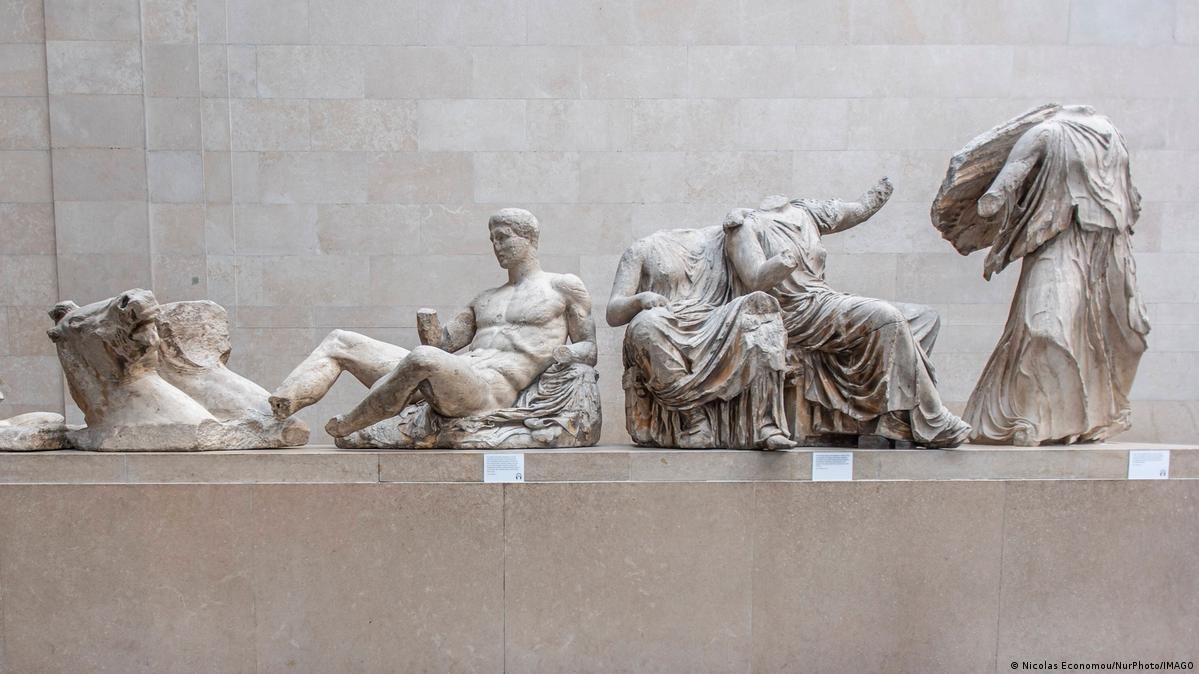Despite Greece’s persistent appeals for the return of the Parthenon Marbles, UK Prime Minister Rishi Sunak has decided to keep them in the British Museum in London. The move has sparked outrage among Greek officials and cultural heritage advocates worldwide.
Sunak’s decision, however, will greatly impact Egyptians, as the British Museum holds several Egyptian artifacts with an ongoing campaign for their repatriation.
Sunak’s Decision: The UK’s Assertion of Ownership
In his announcement, Sunak emphasized the UK’s long-standing care of the marbles and their value as a “huge asset” to the country. He also noted that the British Museum had taken steps to provide information and context about the marbles to visitors, acknowledging the controversy surrounding their acquisition.
Critics of Sunak’s decision argue that the marbles were taken without Greece’s consent and that their continued presence in the British Museum represents a colonialist attitude towards cultural heritage.
They argue that the marbles should be returned to Greece as a gesture of respect for the country’s history and cultural identity.
It is worth noting that the Elgin marbles were removed from Greece during a time of occupation and when Greece did not have full control over its cultural heritage.
The Parthenon Marbles: A Controversial History
The Parthenon marbles, also known as the Elgin marbles, are a group of ancient Greek sculptures that were removed from the Parthenon temple in Athens by Lord Elgin, a British diplomat, in the early 19th century. Elgin claimed that he had obtained permission from the Ottoman Empire, which ruled Greece at the time, to remove the marbles. However, this claim has been disputed by many historians and cultural heritage experts.
The marbles have been on display in the British Museum since 1832 and have been the subject of ongoing controversy over their ownership and potential repatriation to Greece. The Greek government has argued that the marbles were illegally removed from their country and should be returned to their place of origin. On the other hand, the British Museum maintains that it has legal ownership of the marbles and that they are an important part of the institution’s collection.
The Wider Context of Egyptian Artifacts
The controversy over the Parthenon marbles is not an isolated incident, as there are numerous examples of cultural artifacts from former colonies that are housed in Western museums.
Egypt has been campaigning for the return of several artifacts, including the Rosetta Stone and the bust of Nefertiti.
However, the recent decision by Sunak to reject the calls for repatriation of the Parthenon marbles suggests that similar efforts to repatriate Egyptian artifacts may also face significant obstacles.
The Implications of the UK’s Decision
The decision by UK Prime Minister Rishi Sunak to reject calls for the repatriation of the Parthenon marbles has implications not just for Greece, but for all countries seeking the return of their cultural heritage from British museums.
The UK government’s stance on the ownership of these artifacts has been criticized by some as being outdated and insensitive to the cultural heritage of other nations.
The refusal to repatriate cultural heritage can also have economic consequences. Some argue that returning artifacts to their country of origin can help to boost tourism and promote cultural exchange.
The debate over their ownership and rightful place is unlikely to end anytime soon, as the issue highlights the broader question of how cultural artifacts from former colonies should be treated by Western museums. Despite growing pressure and efforts to amend British laws on antiquities recovery, the recent decision by Sunak suggests that significant obstacles remain for any country seeking the return of its cultural artifacts from the British Museum.







What do you think?
It is nice to know your opinion. Leave a comment.